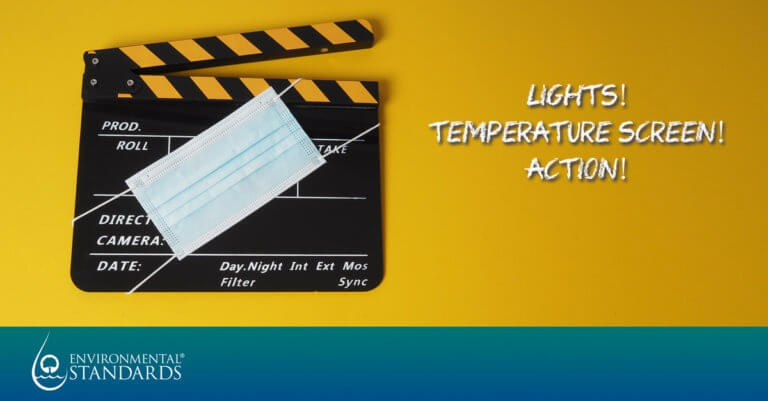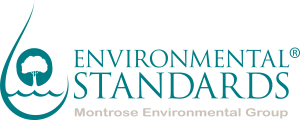
Lights, Temperature Screen, Action!
All industries have been impacted by COVID-19 in some way or another since the beginning of the pandemic. Manufacturing, transportation, medical, and food and beverage are examples of operations deemed essential and able to remain open with safety precautions in place. Other industries such as gyms and recreation centers, casinos, sporting events, and entertainment were deemed non-essential and forced to shut down for an uncertain amount of time. On the bright side, we are seeing many of these non-essential businesses across the country reopening safely with COVID-19 prevention procedures and programs in place.
The entertainment industry that brings us the films, television shows, music, and live entertainment that we all love has a particularly unique challenge during these times. One thing that makes the entertainment we watch so appealing is the realistic nature of the content that is produced. You can assume that while it is commonplace in real life to see individuals wearing masks and socially distancing, this would not be as appealing or ideal to our entertainment needs as a society. Therefore, the film and entertainment industry must adapt when certain COVID-19 prevention measures cannot be obtained.
Protocol Development & Implementation
Before beginning a production project, protocols must be in place to ensure all staff understand the stringent rules that must be followed to conduct work safely. Protocols should identify personnel zone identification, sanitation procedures, ventilation for indoor work, on-site clearance procedures, testing, COVID-19 exposure procedures, personal protective equipment (PPE), and much more. Protocols are key for laying the foundation for conducting an entertainment project in a COVID-19 world and preventing the easing up on policies as the production rolls on.
Testing
To ensure that all production staff remain safe and healthy for the duration of the project, continuous testing must be implemented. Frequency of testing will depend on the exposure, location, and budget of the production. Crew members working closely with cast especially when masks cannot be worn by the cast, may likely need to test at a higher frequency than the rest of the crew. Testing will typically be conducted on-set or at a local testing laboratory. On-set testing allows crew and cast members to efficiently step away from their busy schedules to receive tests. I found it most effective to develop a recurring testing schedule based on the zone identification that each crew and cast member was given before the beginning of production.
On-site Compliance
Once the production is fully up and running, COVID-19 compliance on set is vital to preventing the spread of the virus. A dedicated Health & Safety Manager (HSM) and/or Health & Safety Supervisor (HSS) should be responsible for the following on-set compliance tasks:
- Ensure that sufficient PPE is supplied and properly used by all cast and crew. PPE includes: masks, facemasks, gloves, hand sanitizer, and disinfectant wipes.
- Manage social distancing throughout the entire set. This is extremely important during break times when people tend to socialize.
- Manage indoor capacities and ventilation system.
- Ensure daily check-in by all cast and crew before entering the site.
From my experience as an HSM for a production completed in the fall of 2020, these projects can be completed safely and without significant business interruption. To avoid production delays and prevent the spread of COVID-19, project protocols must be followed and treated with utmost importance. We have found that a dedicated on-site HSM and HSS is the most effective approach to manage all aspects COVID-19 compliance set forth in project protocols. Environmental Standards can provide experienced Health & Safety Managers or Health & Safety Supervisors to ensure a project goes off without a hitch.
To learn more about our On-Site Health & Safety Support or if you have questions for our environmental, health and safety (EHS) professionals, please contact Cody Dye or Shaun Gilday.


